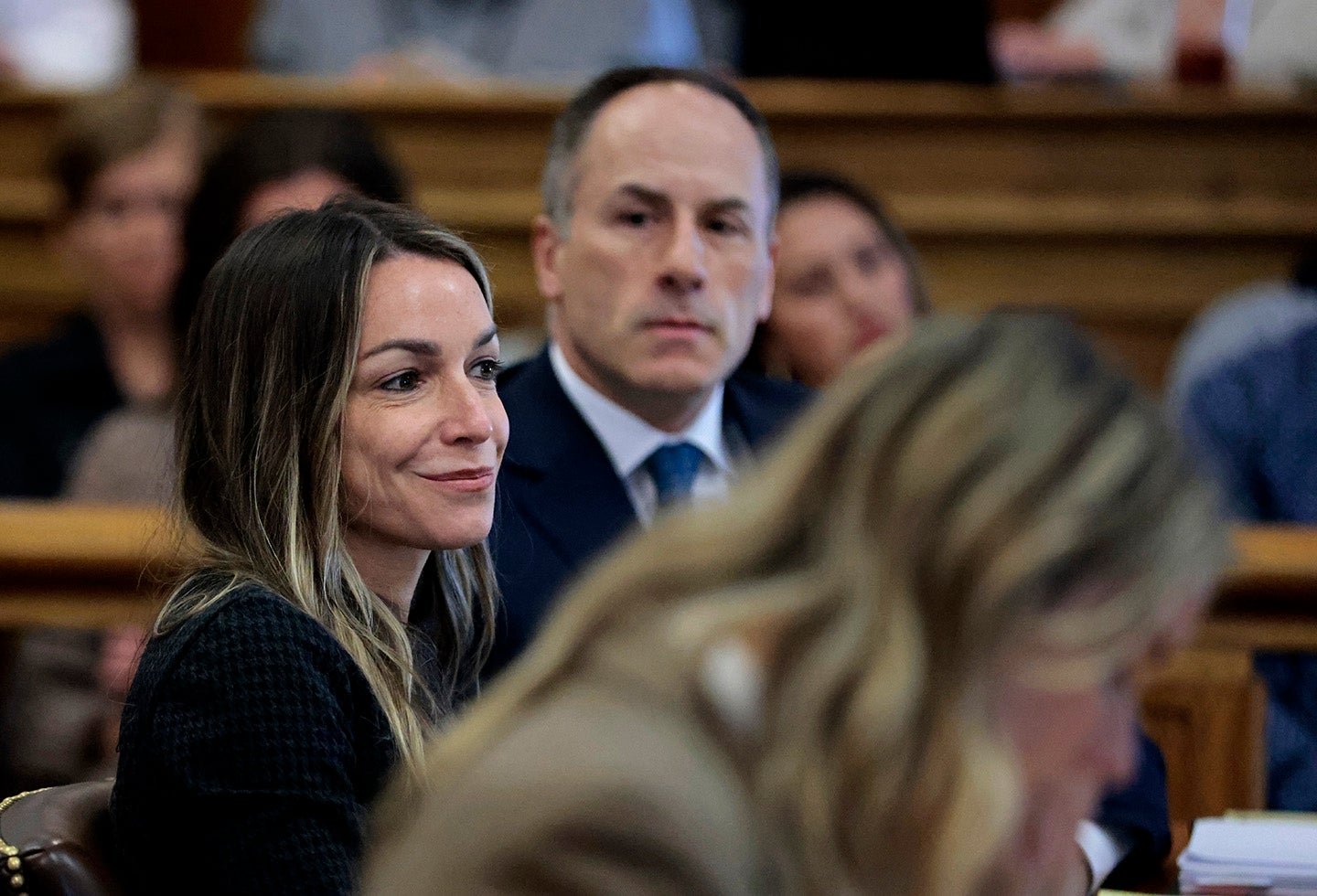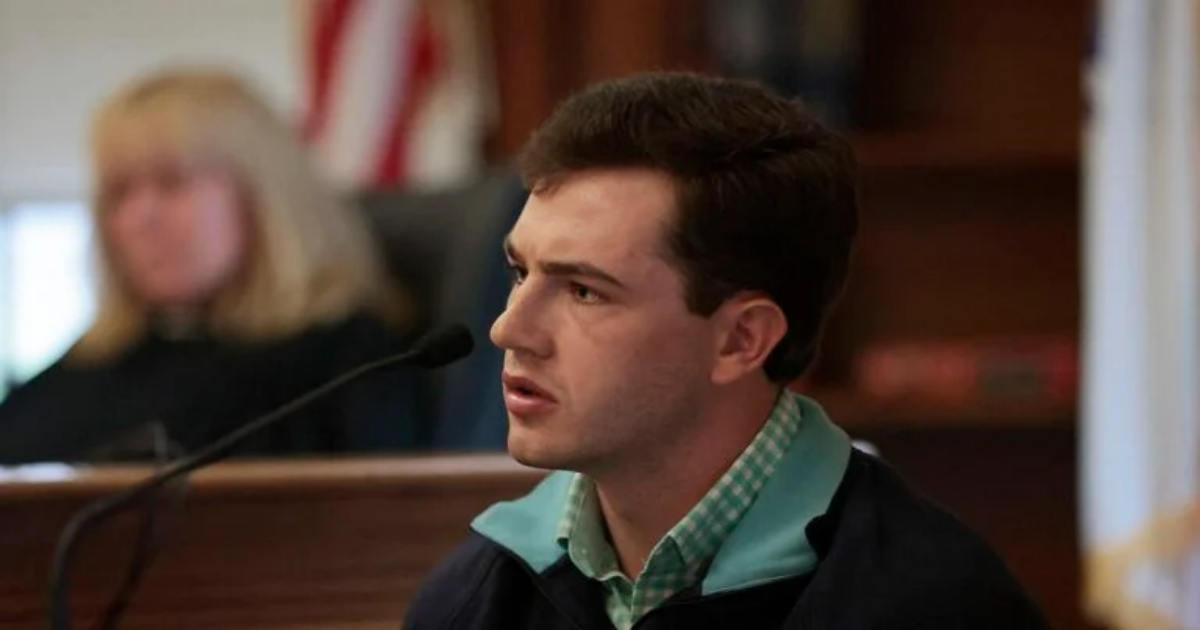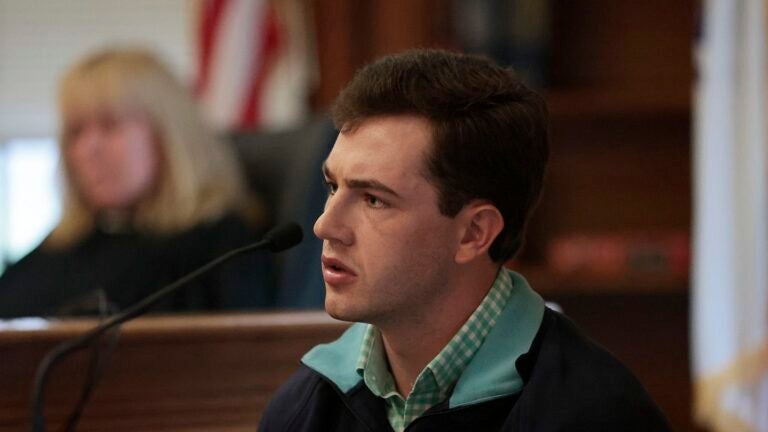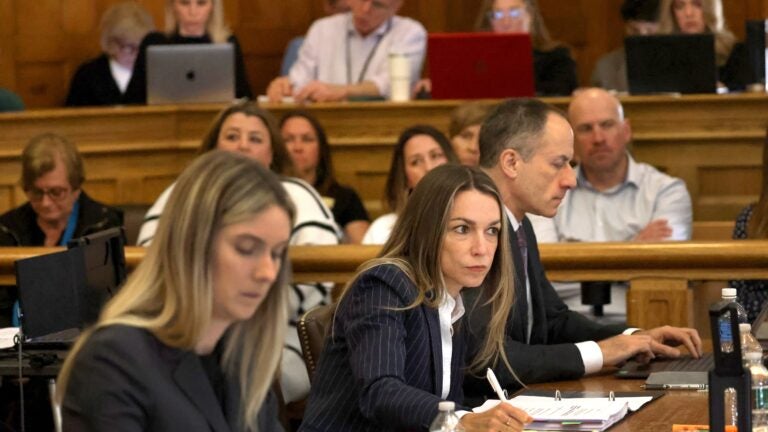By Abby Patkin
March 31, 2025 | 4:39 PM
While Karen Read may raise a third-party culprit defense when her retrial begins next month, she can’t try to pin her boyfriend’s death on witness Colin Albert, Judge Beverly Cannone ruled Monday.
Read’s lawyers have long maintained someone other than Read is responsible for killing Boston Police Officer John O’Keefe in January 2022. In fact, they allege three witnesses were to blame: Colin Albert; his uncle, Brian Albert; and another man, Brian Higgins.
In Monday’s order, Cannone left the door open for a third-party culprit defense implicating Higgins and Brian Albert, though she deemed the proof offered by Read’s lawyers “insufficient to support a preliminary finding that Colin Albert had the motive, intent, and opportunity to commit the crime.”
The upcoming trial will be Read’s second; her first murder trial ended with a hung jury last July.
Prosecutors had previously asked Cannone to block Read from again trying to place the blame on someone else. They allege Read drunkenly and deliberately backed her SUV into O’Keefe while dropping him off at Brian Albert’s house in Canton for an afterparty early on Jan. 29, 2022. Read’s lawyers contend O’Keefe was attacked after walking inside.
While Higgins and the Alberts were present at 34 Fairview Road shortly after midnight on the 29th, they’ve denied seeing O’Keefe enter the home. Colin Albert even testified he left Fairview Road around 12:10 a.m. — before Read and O’Keefe had even pulled up outside, according to prosecutors.
“The evidence of opportunity is wholly inadequate,” Cannone wrote in her order. “There is no evidence that Colin Albert was at 34 Fairview when the defendant and Mr. O’Keefe arrived at the home.”
The judge also cast doubt on the defense team’s claims that Colin Albert had “bad blood” with O’Keefe and had angered O’Keefe, his former neighbor, by throwing beer cans into his bushes.
“There was … no evidence substantiating these claims at the first trial,” Cannone asserted.
The first time around, Read’s lawyers suggested Colin Albert had violent tendencies authorities should have looked into as part of the murder investigation. They played clips of a high school-aged Albert threatening to “f*** up” other teens and showed a photo of him with scraped knuckles weeks after O’Keefe died.
But according to Cannone, that evidence was “speculative at best.”
Citing state legal precedent, she added: “Allowing such ‘feeble third-party culprit evidence poses a risk of unfair prejudice to the Commonwealth’ and would only serve to confuse the jury.”
 Karen Read smiles as Colin Albert, 20, answers questions from defense attorney Alan Jackson. – Pat Greenhouse/Boston Globe Staff
Karen Read smiles as Colin Albert, 20, answers questions from defense attorney Alan Jackson. – Pat Greenhouse/Boston Globe Staff
Still, a skeptical Cannone offered Read’s team a somewhat longer leash for their claims regarding Higgins and Brian Albert. Defense attorney David Yannetti last week suggested Higgins had motive to harm O’Keefe after Higgins exchanged flirty texts with Read, who “ghosted” him in the weeks leading up to her boyfriend’s death. Brian Albert, Yannetti alleged, “had cause” to back up his friend Higgins.
Cannone called the defense’s offer of proof supposedly implicating Higgins and Brian Albert “barely sufficient” and said the “history of the first trial casts doubt on the seriousness of the claim.”
To that end, she said Read’s lawyers can try to develop evidence of third-party culprits at trial but can’t mention potential culprits in their opening statements — the same orders she gave ahead of last year’s trial.
“Though the court may ultimately exclude the proposed third-party culprit evidence, or counsel may abandon the theory, that does not mean that the defendant cannot offer the evidence to show the inadequacy in the police investigation, provided that the proper foundation has been established,” Cannone added.
The judge earlier on Monday blocked Read’s team from calling a retired FBI agent to offer expert testimony critiquing the investigative policies and protocols authorities used in probing O’Keefe’s death.
“The court cannot find nor has defense counsel cited one Massachusetts case where an expert was permitted to opine on the general competency of a police investigation,” Cannone wrote.
Read, she added, can highlight any weak spots in the investigation “through zealous cross-examination of police witnesses.”
Jury selection for Read’s trial begins Tuesday.
Get everything you need to know to start your day, delivered right to your inbox every morning.


